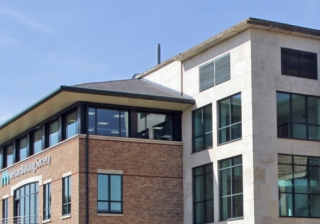MPC member: Why I voted to leave Bank Rate unchanged
Pill says the quarterly pace of 0.25% Bank Rate cuts seen since last summer is too rapid given the inflation outlook.

At its meeting on 9th May, the Monetary Policy Committee (MPC) decided to reduce Bank Rate by 0.25% to 4.25%. The vote was split three ways, with two members preferring to reduce Bank Rate by 0.5%, to 4%, and two members voting to maintain Bank Rate at 4.5%.
MPC member Huw Pill has now revealed why he voted to leave Bank Rate unchanged at the May MPC meeting.
He characterises his vote as favouring a ‘skip’ within a continuing withdrawal of monetary policy restriction, rather than a halt to the process of withdrawal itself.
Huw argues that, while the underlying disinflation process remains intact, the quarterly pace of 0.25% Bank Rate cuts seen since last summer is too rapid given the inflation outlook – in line with his preference for a “cautious and gradual” pace for the withdrawal of policy restriction over the past year.
This caution derives from Huw’s concern that structural changes in price and wage setting behaviour have increased the intrinsic persistence of the UK inflation process. He illustrates these concerns and their implications for monetary policy using a simple model of the UK macroeconomy that incorporates – in contrast to the standard Bank of England models used to construct the baseline forecast and scenarios presented in the MPC’s latest Monetary Policy Report – a role for ‘real income resistance’ in price and wage determination. Scenarios based on this model helped develop and explain his MPC vote.
He stated: "While progress with disinflation is a signal that monetary policy restriction can be removed over time, progress with disinflation is also a signal that monetary policy restriction is working – and as long as disinflation back to target is not complete, maintenance of some restriction will still be required.
"For sure we should be forward-looking and internalise the lags in monetary policy transmission to the inflation rate in making our policy choices. But this simply further highlights the need to manage the (potentially complex) inter-related dynamics between the parallel processes of disinflation and withdrawal of policy restriction. And in my view, that withdrawal of policy restriction has been running a little too fast of late, given the progress achieved thus far with returning inflation to target on a lasting basis.
"My sense is that Bank Rate plateaued at slightly too low a level in 2023, and the MPC started cutting Bank Rate slightly too early in 2024. To compensate, my starting point is that the pace of Bank Rate reduction should be “cautious”, running slower than the 25bp per quarter we have implemented since last August.
"That requires a ‘skip’ in that quarterly pattern at some point. And I decided that the May meeting was an appropriate moment for that ‘skip’."

Breaking news
Direct to your inbox:
More
stories
you'll love:
This week's biggest stories:
Blogs
Mark Eaton: Is 2026 the year brokers die out?

Inflation
Further rate cuts dampened as inflation rebounds to 3.4%
Vida
Vida launches high LTV 'Pathway' mortgage range

Melton Building Society
Melton BS launches 100% LTV mortgage

First-time Buyer
Improved affordability sparks 20% rise in first-time buyers: Nationwide

AI
Financial services exposed to ‘serious harm’ from AI risks: Treasury Committee
